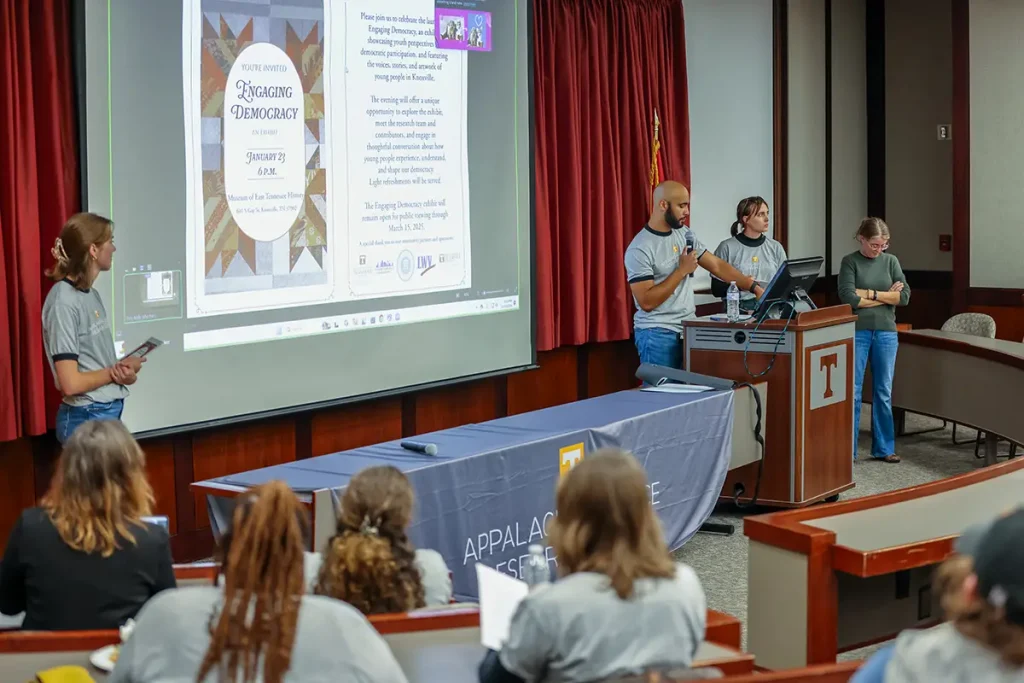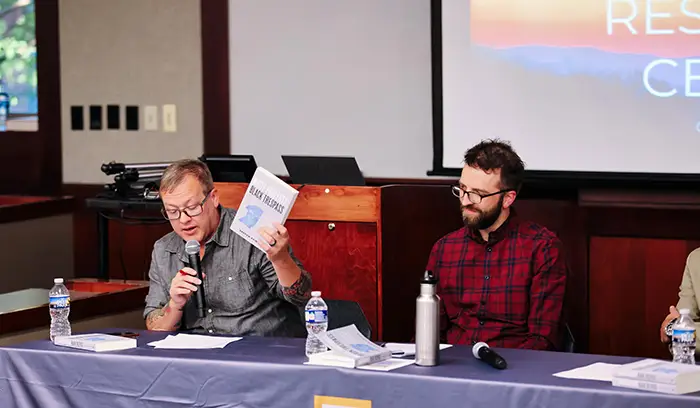Justice Studies Program Adds Insight to Any Major

UT’s interdisciplinary justice studies program launched in 2024 to offer students an enhanced understanding of social and economic justice issues across a variety of fields and career paths.
“It’s an interdisciplinary approach to the study of justice and injustice,” said Tyler Wall, associate professor in sociology and chair of the program. “It’s justice broadly construed—we’re interested in economic justice and social justice, and then questions around law, power, conflict, and harm.”
The program integrates social sciences, the humanities, and law into a self-guided curriculum to give students a comprehensive, contextualized understanding of justice and injustice and empower them to engage meaningfully with the challenges of justice in a highly complex and stratified world. Students can currently earn an undergraduate certificate, and work is underway to establish a minor that could go live in fall 2025.
Justice studies was introduced along with other interdisciplinary programs as part of the College of Arts and Sciences Consortium on Social and Cultural Inquiry (CoSCI), overseen by Professor Patrick Grzanka, divisional dean for social sciences.
“This is a field that touches virtually every major within the college, addressing big-picture questions,” said Grzanka. “It encompasses how we think about the relationships between the physical sciences and social justice and how we think about the social sciences, humanities, and justice. This exciting field compels us to consider how we ask questions raised by complex social problems, as well as how best to address these problems, including issues of injustice here in Tennessee and throughout the Appalachian region.”

Department of Sociology Professor Michelle Brown, co-director of UT’s Appalachian Justice Research Center (AJRC), initiated the justice studies program to create an interdisciplinary space for studying issues addressed by the center and in the broader scope of justice issues. It pulls from many arts and sciences departments, including sociology, anthropology, Africana studies, political science, philosophy, religious studies, women and gender sexuality studies, geography, and history.
The curated list of justice studies courses gives students one track that focuses on theoretical and conceptual foundations, and one called justice in an historical and contemporary way that is grounded in case study of specific regions or time periods.
“This curriculum looks at complex questions—what is justice, what is injustice—and who defines that,” said Wall. “It’s how the structures of power, conflict and harm, violence, and inequality link up with the different experiences of different populations. Who benefits from that and who doesn’t? It’s asking these questions while also trying to put it in a concrete, historical and contemporary kind of context.”
The AJRC’s Research Lab adds an important course for justice studies (Justice 461/Law 861) that gives students a real-time experience in how combined studies and research benefit the Tennessee community.
“The lab consists of undergrads, graduate students, and law students, so it’s pretty unique,” said Wall. “They work with a professor on projects called for by local organizations or groups that have a particular issue of concern. That’s a real touchstone for the program where the theoretical, conceptual training around justice is really put to work on practical community problems in the region.”
Examining these real-world questions through the justice-studies lens can add valuable perspective for students in any major.
“The world is a complex place,” said Wall. “When you think about all the media we consume or observe, that complexity is often centering around questions of justice: who got what and why? Many disciplines are already thinking through those questions, so we’re putting questions of justice at the center of any type of analysis that they’re going to deal with in any kind of field.”
By Randall Brown